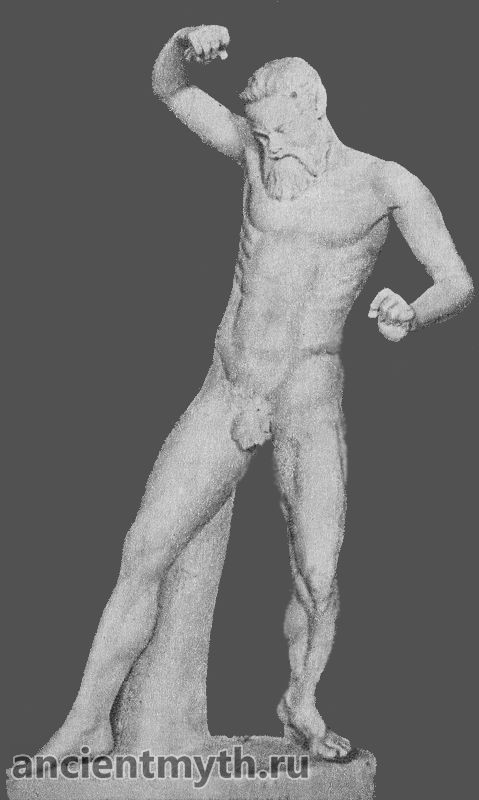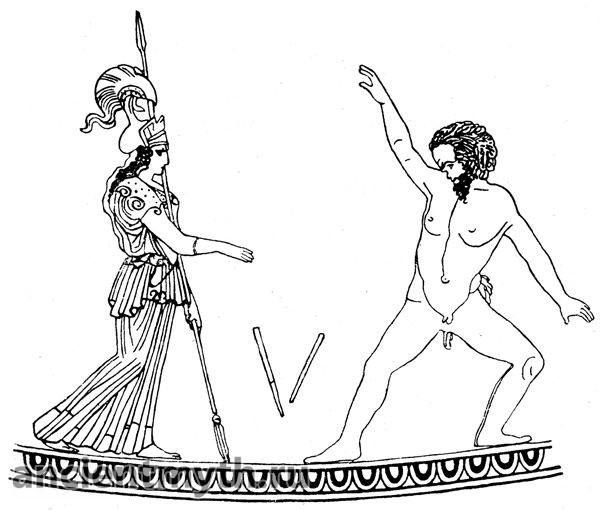Marcius
Severely punished Apollo and the Phrygian satyr Marcia for the fact that Marcius dared to compete with him in music. Kifared Apollo didn't take down such audacity. One day, wandering through the fields of Phrygia, Marsyas found a reed flute. She was abandoned by the goddess Athena, noticing that playing the flute invented by herself disfigures her divinely beautiful face. Athena cursed her invention and said:

- Let the one who picks up this flute be severely punished.
Not knowing anything about what Athena had said, Marsyas picked up the flute and soon learned to play it so well that everyone listened to this simple music. Marsyas became proud and challenged the patron saint of music Apollo to a competition.
Apollo came to the call in a long, magnificent robe, a laurel wreath and a golden kithara in his hands.

How insignificant Marsyas, the inhabitant of forests and fields, seemed before the majestic, beautiful Apollo with his pathetic reed flute! How could he extract from the flute such wonderful sounds as flew from the golden strings of the cithara of the leader of the muses Apollo! Apollo won. Enraged by the challenge, he ordered the unfortunate Marcius to be hanged by the hands and skinned alive. So Marsyas paid for his courage. And the skin of Marsyas was hung in the grotto of Kelen in Phrygia, and it was later told that she always began to move, as if dancing, when the sounds of the Phrygian reed flute reached the grotto, and remained motionless when the majestic sounds of the kithara were heard.